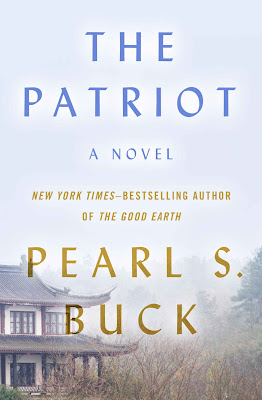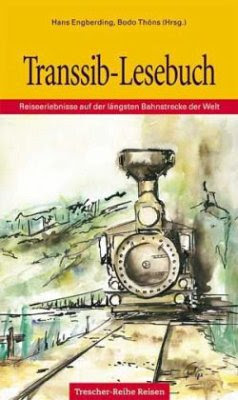Theroux, Paul "Riding the Iron Rooster" - 1988
The name Theroux is well known in the United Kingdom. Though not with the first name Paul but with that of his son, Louis. So, I had never read anything by the elder Theroux until I was given this book by one of our book club members.
I love travel books and this one doesn't make an exception. The author travelled through China in the 1980s, first with a travel group, then on his own. The members or the travel group are described the way that I would probably see them, as well. I have always preferred to travel with family or some good friends rather than some strangers that might turn out to be real bores or terribly annoying. But also when he carries on on his own, he is hardly ever alone as the Chinese like to give him a babysitter.
In any case, the descriptions of the voyage is interesting, the people he meets on the train, one is more weird than the other, the landscape is depicted to well that you can imagine seeing it yourself, the food seems to stand just in front of you.
I liked the interaction with the Chinese people and the exploring of areas where they hardly let any foreigner travel. A good book about a country still very unknown to us. I wonder what Paul Theroux would see today?
Some books, Paul Theroux was reading while "Riding the Iron Rooster":
Avedon, John "In Exile from the Land of Snows" - 1984 (Goodreads)
Balzac "Old Goriot" (FR: Le Père Goriot) - 1834 (Goodreads)
Lewis, Sinclair "Elmer Gantry" - 1927 (Nobel Prize in Literature 1930) (Goodreads)
Lewis, Sinclair "Main Street" - 1920 (Goodreads)
Morrison, Arthur "The Hole in the Wall" - 1902 (Goodreads)
Stevenson, Robert Louis "Kidnapped" - 1886 (Goodreads)
From the back cover:
"An eye-opening and entertaining account of travels in old and new China, by the author of The Great Railway Bazaar
Paul Theroux left Victoria Station on a rainy Saturday in April thinking that taking eight trains across Europe, Eastern Europe, the USSR and Mongolia would be the easy way to get to the Chinese border - the relaxing way, even. He would read a little, take notes, eat regular meals and gaze contentedly out of windows. The reality, of course, was very different. In fact, Theroux experienced a decidedly odd and unexpected trip to China that set the challenging tone for his epic year-long rail journey around that vast, inscrutable land - a journey which involved riding nearly every train in the country."





























